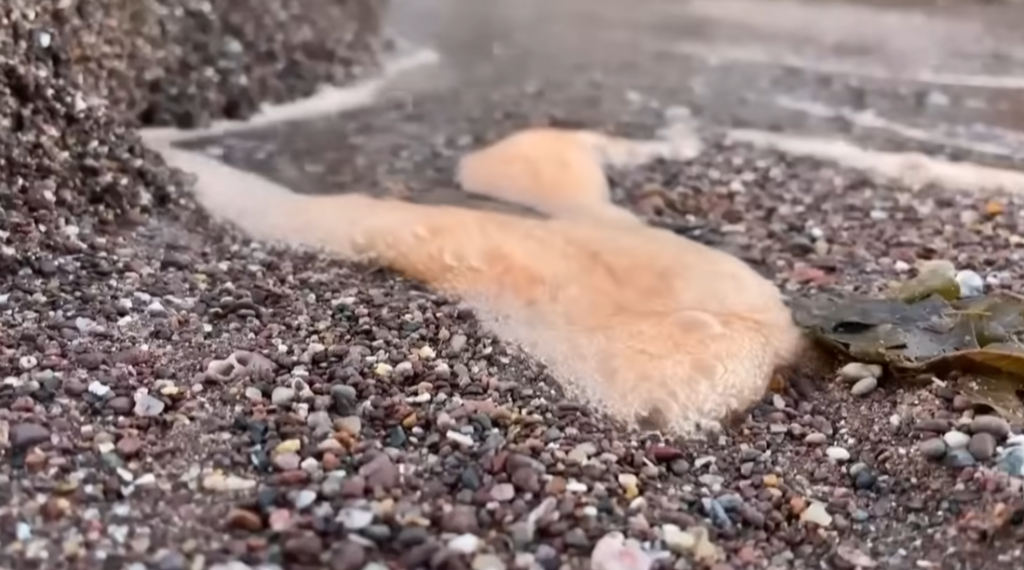“Polluting‑for‑profit water companies, industrial‑scale agriculture, and toothless regulation have failed people and nature alike.”
Bathing waters in England are five times more likely to be polluted than those in the EU, according to new research.
Analysis by Best for Britain, a group campaigning for closer UK-EU ties, found that people across all four UK nations are less likely to swim in “excellent” quality waters than in the EU.
The research found that 64.2 percent of England’s bathing waters were rated excellent by the Environment Agency (EA) in 2024, while 85.4 percent of the EU’s were graded the same by the European Environment Agency (EEA). Bathing waters in the UK and the EU are measured under the same standards. Britain is under the bathing water regulations 2013, and the EU is under the bathing water directive. Both regulations apply the same standards of how much of various bacteria, such as E coli, can be in 100ml of water to meet the criteria.
Waters fall into the “poor” category when they contain unsafe levels of bacteria. Exposure to such waters can pose serious health risks to swimmers.
On top of there being less excellent rated bathing waters, more waters were rated as “poor” in England compared to any country in the EU. In 2024, England was found to have 8.4 percent “poor” bathing waters, Scotland 3.4 percent, Wales 1.8 percent and the EU 1.5 percent. Estonia had the highest share of officially rated “poor” bathing waters among EU countries at 4.6 percent.
Spots are rated “poor” if they fail to meet certain standards of safe bathing. They might, for example, have high quantities of bacteria, such as E coli, which can cause serious illness.
Although the UK and EU enforce the same regulations, the research suggests that many EU countries are applying and enforcing those standards more effectively. The UK’s Office for Environmental Protection, which was established after Brexit to replace EU oversight, has warned that Britain is on course to miss water cleanliness targets it would have been obliged to meet as a member state.
Meanwhile, the EU is preparing to strengthen its regulations further. A revision of the Urban Waste Water Treatment Directive will require countries to upgrade wastewater treatment processes to filter out a broader range of chemical, pharmaceutical and pesticide pollutants.
Amy Fairman, head of campaigns at environmental group River Action, said the figures confirmed what many river users already fear that “UK waters are in crisis.
“Polluting‑for‑profit water companies, industrial‑scale agriculture, and toothless regulation have failed people and nature alike,” said Fairman.
“The independent water commission was right to call for Ofwat’s replacement, but only real power, enforcement, and accountability will fix a broken system. It’s outrageous that the UK now sits amongst the worst performing countries for water quality in Europe – and unless we act, we’ll return to our shameful position as the ‘dirty man of Europe’,” she added.
Naomi Smith, chief executive of Best for Britain, said the public is losing patience: “People are rightly appalled by the disgusting state of the UK’s rivers, lakes and beaches. Clean water should be guaranteed to all, and no one should have to risk their or their child’s health simply by enjoying a swim or paddle on a sunny day.
“Once again, when it comes to environmental regulation, enforcement and protecting people’s health, the European Union leads the charge. This is yet more evidence ministers must properly implement and enforce existing standards – and keep pace as the EU raises the bar in ways that can tangibly benefit millions, as our polling shows voters expect.”
Left Foot Forward doesn’t have the backing of big business or billionaires. We rely on the kind and generous support of ordinary people like you.
You can support hard-hitting journalism that holds the right to account, provides a forum for debate among progressives, and covers the stories the rest of the media ignore. Donate today.




